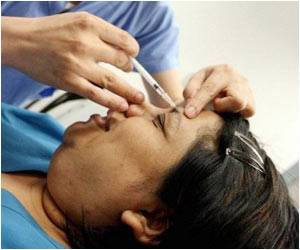In the new study, researchers used targeted maximum likelihood estimation to identify the prognostic genes and estimate both the causal effects in cancer patients.

‘Identifying genes related to the TME and the BCR of prostate adenocarcinoma might facilitate the disease prognosis.’
Read More..




POSTN and NETO1 were correlated with androgen receptor expression, a main driver of prostate adenocarcinoma progression.Read More..
Finally, five genes were validated in another prostate adenocarcinoma cohort.
Dr. Fuzhong Xue from The Shandong University said, "Prostate cancer is a common malignant tumor and the leading cause of cancer-related mortality in men."
Prostate adenocarcinoma is the most common type of prostate cancer, whereas other types of prostate cancer are relatively rare.
In this study, the authors used targeted maximum likelihood estimation, a doubly robust method to detect the prognostic genes and estimate both the average and individual causal effects.
Advertisement
Thus, they applied the algorithm CovSel to select the minimal conditioning set that was sufficient for unbiased effect estimations of the target gene on the BCR.
Advertisement
The Xue Research Team concluded in their Aging-US Research Output, "we used TCGA dataset to identify the potential prognostic genes in PRAD. Using the associations between the immune/stromal scores and the prognosis of PRAD, we revealed a set of genes related to the TME and the BCR of PRAD.
These findings might facilitate the prognosis of PRAD. Based on our study, previously neglected genes could be used as biomarkers for PRAD. Finally, further studies of these genes could provide a more comprehensive understanding of the potential relationship between the prognosis of PRAD and the TME."
Source-Eurekalert

![Prostate Specific Antigen [PSA] & Prostate Cancer Diagnosis Prostate Specific Antigen [PSA] & Prostate Cancer Diagnosis](https://images.medindia.net/patientinfo/120_100/prostate-specific-antigen.jpg)










